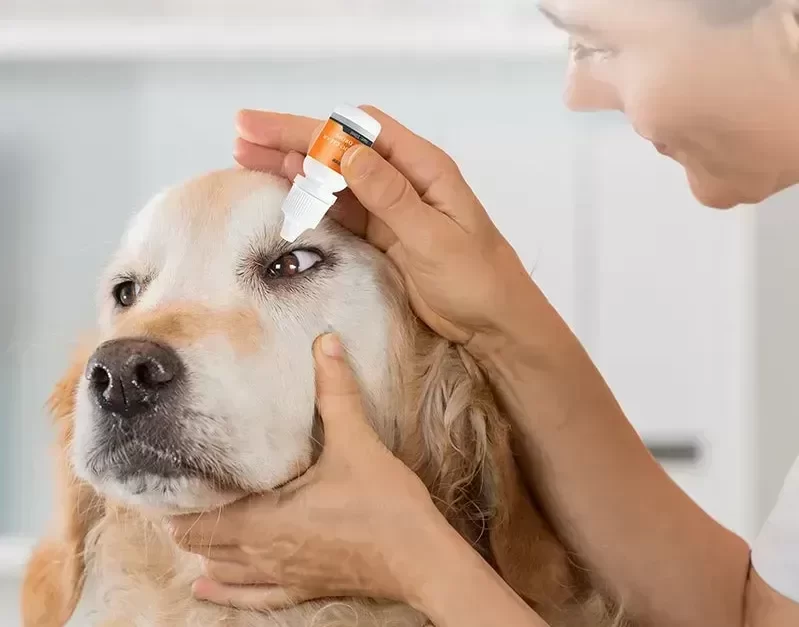How to Handle Pet Skin Irritations: Effective Solutions for Your Furry Friends
- Understanding Pet Skin Irritations
- Common Causes of Skin Irritations in Pets
- Treatments and Remedies for Pet Skin Irritations
- Preventing Skin Irritations in Pets
- When to Seek Veterinary Care for Skin Irritations
1. Understanding Pet Skin Irritations
Skin irritations in pets are a common issue that can cause discomfort and distress for both animals and their owners. These irritations can manifest as redness, itching, bumps, dry patches, or even hair loss. Understanding the root causes of skin irritations in pets is the first step in helping them recover and prevent further discomfort.
Pets, particularly dogs and cats, have sensitive skin that can react to a variety of environmental, dietary, or internal factors. Identifying the source of the irritation is key to treating the condition effectively and ensuring your pet’s skin remains healthy.
2. Common Causes of Skin Irritations in Pets
Skin irritations in pets can be triggered by a range of factors. Some of the most common causes include:

3131 E Thunderbird Rd STE 59, Phoenix, AZ 85032, USA
See Details2.1. Allergies
Just like humans, pets can develop allergies to certain foods, environmental factors (like pollen or dust mites), or even substances they come into contact with, such as certain shampoos or cleaning products. Allergic reactions often lead to itching, redness, and inflammation of the skin.
2.2. Fleas and Parasites
Fleas, ticks, and other parasites can cause severe itching and skin irritation in pets. Flea bites can lead to flea dermatitis, which causes inflamed, irritated skin, often resulting in hair loss and secondary infections.
2.3. Dry Skin
Dry or flaky skin is a common issue, especially in colder climates. A lack of moisture in the air can cause your pet’s skin to become dry and irritated, leading to excessive scratching and discomfort.
2.4. Infections
Bacterial, fungal, or yeast infections can also cause skin problems in pets. These infections often occur when there is a break in the skin due to scratching or other injuries, leading to redness, swelling, and sometimes discharge or pus.
2.5. Hot Spots
Hot spots are areas of the skin that become red, inflamed, and infected due to excessive licking, chewing, or scratching. These painful spots can appear suddenly and require immediate attention.
3. Treatments and Remedies for Pet Skin Irritations
Treating pet skin irritations often requires a combination of at-home remedies and professional care. Here are some effective solutions:
3.1. Topical Treatments
For mild irritations, topical treatments such as medicated creams, sprays, or shampoos can provide relief. Look for products containing hydrocortisone, oatmeal, or aloe vera, which can help soothe the skin and reduce inflammation.
3.2. Flea and Parasite Control
If fleas or other parasites are the cause of the irritation, it's important to use flea treatments such as flea collars, topical drops, or oral medications to eliminate the problem. Regular flea prevention is essential to keep your pet comfortable and itch-free.
3.3. Bathing and Moisturizing
Bathing your pet with a gentle, hypoallergenic pet shampoo can help clean the skin and relieve irritation. Follow up with a moisturizing pet conditioner to keep the skin hydrated and prevent further dryness or cracking.
3.4. Anti-itch Medications
If your pet is excessively itching or scratching, anti-itch medications such as antihistamines or corticosteroids might be recommended by your veterinarian to reduce the itching and prevent further damage to the skin.
4. Preventing Skin Irritations in Pets
Prevention is always better than cure, and with a few simple steps, you can reduce the risk of skin irritations in your pet:
4.1. Regular Grooming
Regular grooming helps maintain healthy skin and fur by removing dirt, debris, and loose hair. This also reduces the risk of infections and hot spots. Brush your pet's fur to prevent matting and tangles, which can trap moisture and cause skin irritation.
4.2. Allergic Triggers
If your pet has allergies, try to identify and avoid the allergens. This may include changing their food, using allergy-friendly cleaning products, or limiting their exposure to pollen or other environmental triggers.
4.3. Flea Prevention
Implement a regular flea and parasite prevention routine to protect your pet. This includes using flea treatments year-round, especially during warmer months when fleas are more prevalent.
4.4. Hydration and Diet
A balanced diet rich in essential fatty acids, such as omega-3s, can help maintain healthy skin and coat. Ensure your pet has access to clean water and is eating a nutritious, allergy-free diet if necessary.
5. When to Seek Veterinary Care for Skin Irritations
While most skin irritations can be managed at home, there are times when veterinary care is necessary:
5.1. Severe or Persistent Symptoms
If your pet’s skin irritation does not improve after a few days or becomes more severe, it's time to consult a veterinarian. Persistent symptoms may indicate a deeper issue, such as an infection or underlying medical condition.
5.2. Signs of Infection
If the irritated area becomes infected (e.g., pus, odor, or swelling), immediate veterinary attention is required. Your vet may prescribe antibiotics or antifungal medications to treat the infection.
5.3. Excessive Scratching or Licking
If your pet is constantly scratching or licking an area, it can lead to further skin damage. In this case, a vet may need to provide a more targeted treatment plan, including medications or even a protective collar to prevent self-injury.
Conclusion
Handling pet skin irritations requires patience, proper care, and in some cases, professional intervention. By understanding the causes and symptoms of skin problems, you can provide your pet with effective relief and prevent future irritations. Whether it’s treating an allergy, managing a flea infestation, or soothing dry skin, the right approach will help your furry friend feel better in no time.
If you're dealing with persistent skin irritations or need further advice, consider consulting with a veterinary professional at Hidden Brook Veterinary.











